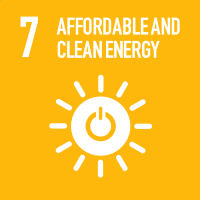Studying at the University of Verona
Here you can find information on the organisational aspects of the Programme, lecture timetables, learning activities and useful contact details for your time at the University, from enrolment to graduation.
Study Plan
This information is intended exclusively for students already enrolled in this course.If you are a new student interested in enrolling, you can find information about the course of study on the course page:
Laurea in Biotecnologie - Enrollment from 2025/2026The Study Plan includes all modules, teaching and learning activities that each student will need to undertake during their time at the University.
Please select your Study Plan based on your enrollment year.
1° Year
| Modules | Credits | TAF | SSD |
|---|
2° Year activated in the A.Y. 2023/2024
| Modules | Credits | TAF | SSD |
|---|
1 module between the following3° Year activated in the A.Y. 2024/2025
| Modules | Credits | TAF | SSD |
|---|
1 module among the following1 module among the following1 module among the following| Modules | Credits | TAF | SSD |
|---|
| Modules | Credits | TAF | SSD |
|---|
1 module between the following| Modules | Credits | TAF | SSD |
|---|
1 module among the following1 module among the following1 module among the followingLegend | Type of training activity (TTA)
TAF (Type of Educational Activity) All courses and activities are classified into different types of educational activities, indicated by a letter.
Basis of physical chemistry (2023/2024)
Teaching code
4S010568
Credits
6
Language
Italian
Scientific Disciplinary Sector (SSD)
CHIM/02 - PHYSICAL CHEMISTRY
Courses Single
Authorized with reserve
The teaching is organized as follows:
Teoria mod. 1
Elements of physical chemistry
Laboratorio [1° turno]
Laboratorio [2° turno]
Learning objectives
The course will provide the fundamental skills to understand chemical-physical phenomena concerning systems of biotechnological interest. The student will acquire the ability to apply chemical-physical concepts for the measurement of thermodynamic, kinetic, spectroscopic and transport quantities. Special attention will be devoted to applicative aspects, such as cases of real systems and various methods to analyse the results obtained from laboratory experiments. The course will include laboratory experiences to provide manual skills and critical ability in dealing with chemical-physical processes, as well as to provide notions on acquiring data with modern equipment. Experiments concerning the measurement of thermodynamic quantities, kinetic constants and other spectroscopic properties, concerning electronic, vibrational and nuclear magnetic resonance (NMR) properties of molecules of biotechnological interest will be discussed. Moreover, experiments on the properties of colloidal systems will be considered.
Prerequisites and basic notions
General and Inorganic Chemistry. Organic chemistry.
Program
THEORY
Module 1 (24 hours; 3 CFU)
Chemical transformations in biology:
- the thermodynamics of reactions: enthalpy, entropy, Gibbs free energy of reaction; chemical potential);
- variation of the equilibrium constant with temperature;
- effect of experimental conditions: variation in temperature, pressure, presence of enzymes;
- proton transfer equilibria in water: several examples of buffers used in the biotechnological field; understanding the nature of the species under examination at a defined pH value; - chemical kinetics and reaction mechanisms: kinetic laws and experimental techniques for their determination; RDS; Arrhenius equation; consecutive or parallel reactions; steady state approximation; kinetic or thermodynamic control. Intermolecular interactions as a key to understanding drug-protein, nutrient-carrier, enzyme-substrate, biopolymer-surface, drug-carrier, nutrient-carrier interactions.
Examples applied to situations of biotechnological interest in the fields of Pharmaceutical Chemistry, Food Chemistry, Bio-organic Chemistry and Supramolecular Chemistry:
- pharmacokinetics (e.g. kinetics of absorption, distribution, metabolism and excretion)
- pharmacodynamics: drug-target interaction modes
- kinetics of release/oxidation of a food within a formulation
- "host-guest" interaction or kinetics and thermodynamics of inhibition of biological processes: mitochondrial respiratory chain.
Module 2 (16 hours; 2 CFU)
Light as an investigation tool of molecular properties in the biological field:
- electronic energy levels and molecular orbitals; absorption and fluorescence spectra in the ultraviolet and visible regions; chromophores;
- vibrational energy levels of molecules in the harmonic approximation; infrared molecular absorption;
- analysis and interpretation of optical spectra (UV-visible-infrared) of organic molecules of biotechnological interest with different functionalities.
Nuclear magnetic resonance (NMR): potential and analysis and interpretation of NMR spectra of organic molecules of biotechnological interest.
Colloids and colloidal properties; colloidal nanostructured systems for biotechnological applications.
LABORATORY EXPERIENCES
(12 hours; 1 CFU)
Measurement of the equilibrium constant of a chromatic pH indicator using a spectrophotometric method.
Determination of the kinetic law of alkaline degradation of crystal violet.
Acquisition and analysis of fluorescence spectra for molecules used as tracers in biotechnology.
Measurement of zeta potential and hydrodynamic diameter of colloidal systems.
Bibliography
Didactic methods
The teaching will be carried out as lectures and laboratory experiences. The teaching methods will include the application of the concepts developed to concrete cases. Attendance of the teaching is strongly recommended. For the laboratory part, for each experience the drafting of a written paper is required which illustrates the methods and tools used together with the results obtained.
Learning assessment procedures
The exam will be oral, including questions on the topics covered in both modules and the part concerning laboratory experiences. Mastery of the concepts illustrated will be assessed, in particular the application aspects. The skills acquired from laboratory experiences will also be evaluated. The verification methods will be the same for both attending and non-attending students. Extraordinary appeals may possibly be envisaged, subject to agreement with the teachers.
Evaluation criteria
The evaluation criteria will be based on the ability to discursively organize knowledge, critical reasoning on the skills acquired, quality of exposure, effectiveness and linearity of exposure.
Criteria for the composition of the final grade
The final grade will be given in relation to the learning of the theoretical parts of the two modules and the laboratory experiences.
A score will be assigned for each written paper relating to the four laboratory experiences (from 0 to 0.5 points per paper). The sum of the four scores (for a maximum total of 2 points) will be added to the oral exam grade.
Exam language
Italiano.




